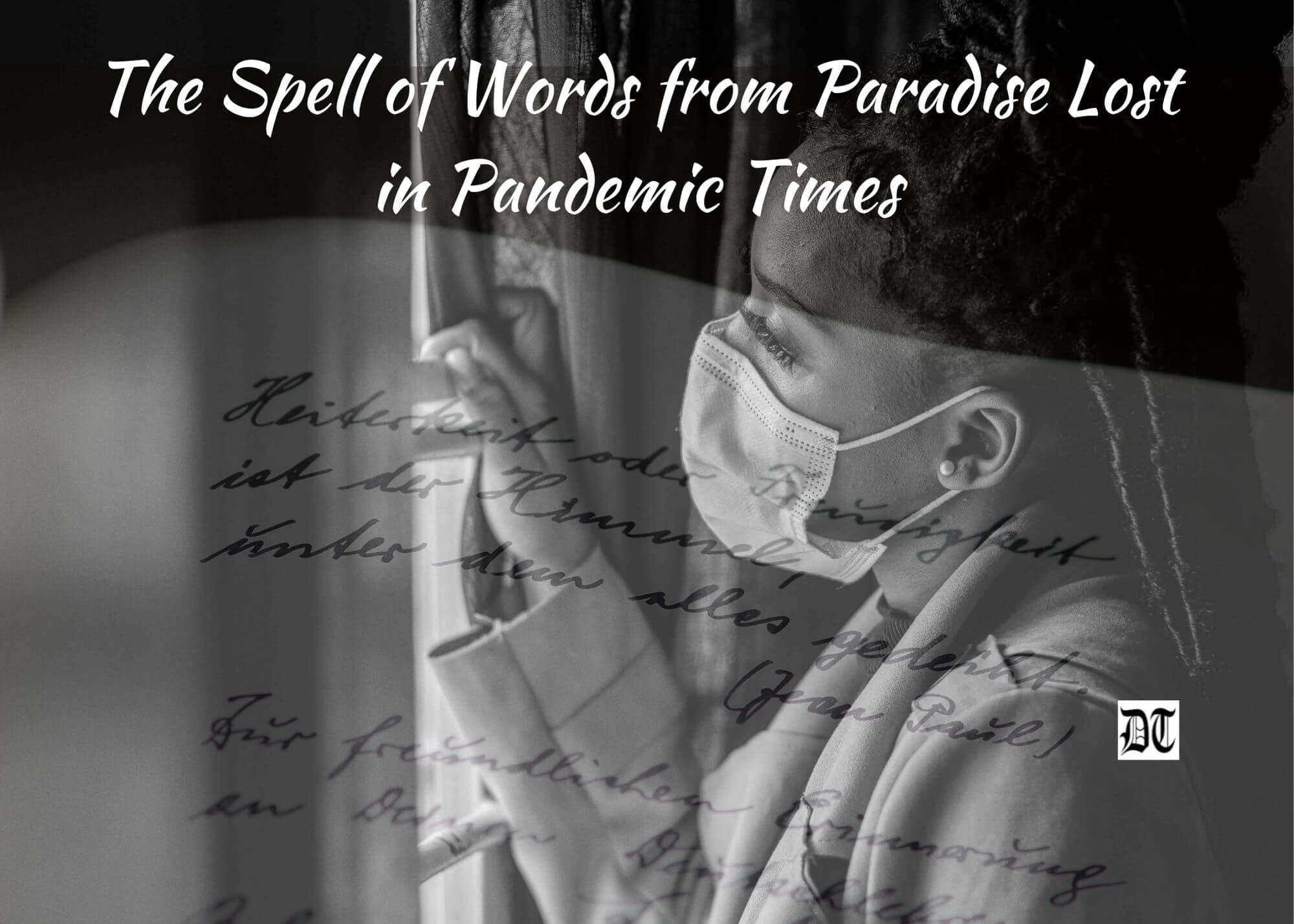Sapanpreet revisits Paradise Lost during the pandemic. Does she find answers about isolation and quarantine in Milton’s epic? Find out in an exclusive for Different Truths.
Art truly is timeless irrespective of its mediums. Not looking further than books when I ponder upon art’s timeless aspect. There may be works that could be centuries old; nevertheless, we continue to read them and obtain value from them. Literature is timeless and universal because it articulates human experiences aesthetically. Because it endeavours to grasp the universalities of life (joys, sufferings, and fate), herein lies in appeal something that is written ages ago may strike as immensely relevant today. For this reason, at times of odds, a literate mind may take recourse to the works of literature in his efforts to cope with the testing times. Something similar happened to me during the Pandemic when we were trying to understand the divine scheme, some by referring to scriptures, but people like me found it best to resort to literature.
This pandemic gave me ample leisure to read new books and re-read older ones, like Paradise Lost by John Milton.
This pandemic gave me ample leisure to read new books and re-read older ones, like Paradise Lost by John Milton. Interestingly and to my sheer astonishment, some famous dialogues by Satan, Adam and Eve from the magnum opus not only helped me to cope with the situation but also to comprehend ‘the justification of the ways of God to Man in the times of existential crises.’ Yes, God’s ways are needed to be justified in reaction to the doubts we cast on God and religion when we observe that human life is too fragile to be lived for years. Satan’s words were incredibly relevant in coping with the testing times of the Pandemic and reinforcing covid stipulations. I have picked two quotations from the epic that was highly relevant to me in those days. They are not just the words of Satan, Adam and Eve but substantive to become timeless quotations- and for people like me, they are no less than motivational. The first among them is,
"A mind not to be changed by place or time. The mind is its place and in itself. Can make a heaven of hell, a hell of heaven." (Paradise Lost, Book I)
Satan is trying to pacify himself and other fallen angels in hell, the pit of fire. Isn’t it highly relevant in our day-to-day lives, and aren’t we struggling every day to push ourselves out from the specific hellish-like conditions by performing specific exercises like mindfulness or Yoga? Is Satan alluding to mindfulness? Probably yes. Mindfulness meditation is a mental training that teaches us to calm both body and mind and helps let go of negativity. In short, the technique is to shift your thoughts away from the usual preoccupations towards an appreciation of a moment and an effective way to escape from the world’s harsh realities to strengthen our resolve. Everywhere we are surrounded by screens.
Nevertheless, we strive to visualise good times on our minds’ screens. When things turned gross, the string of life began to lose in our palms due to economic instability and the terrific pandemic; To let go of the negativity, we turned to Ramayana on Doordarshan; fitness turned out to be a priority; many of us donned chef caps to reimagine ours as ‘good food good life. Maybe we were all trying to find our lost paradises by shifting our interests to the little but interesting things as stress busters.
These lines by Adam for Eve are distinctly accordant to ‘quarantine’ during stipulations.
Next from the epic is “For solitude sometimes is the best society, / And short retirement urges sweet return” (Paradise Lost, Book IX). These lines by Adam for Eve are distinctly accordant to ‘quarantine’ stipulations. Adam and Eve choose to separate from each other for some time after their fall from the paradise as the former prospects that short retirements always urge sweet reunions. Although like Eve, we all went through melancholy and sadness during the separation period, we all made it up by calling up our friends or relatives whom we could not catch up with for longer times due to our busy routines. The end of the lockdown was like starting our lives afresh, and meeting with our colleagues and friends after a long came as a blissful reunion as we had already forgotten trivial mistakes or complaints against each other. What mattered to us were the concerns regarding their health. Indeed, the parting was perturbing, but the reunion was a true bliss.
So, all I had realised was the timelessness and relevance of the previously discussed dialogues in the most unfavourable conditions from the mouth of the most unpleasant character – Milton’s Satan. The significance rendered to his character by Milton is perennial, which is why the dynamicity of his words illuminates in Pandemic too. Long Live wisdom and the miracle of words irrespective of conditions, the characters and their attributes.
Picture design by Anumita Roy, Different Truths





 By
By
 By
By
 By
By
 By
By
Nice write up. Literature, especially mythological narratives, do offer solace in difficult times.